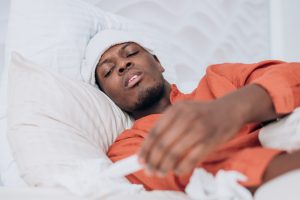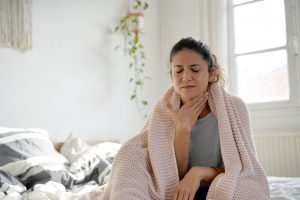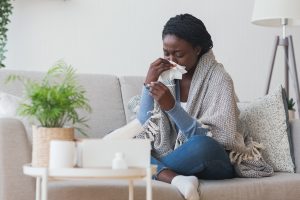Chikungunya virus (CHIKV) outbreaks have occurred across Africa, the Americas, the Caribbean, Asia, Europe, and the Indian and Pacific Oceans. As of 4 May 2025, the Americas reported the highest number of CHIKV cases globally: 135,654 cases, including 54,377 confirmed infections. Outbreaks have recently re-emerged in Réunion, Mayotte, Mauritius, Somalia, and Sri Lanka. This resurgence comes nearly 20 years after the significant 2005–2006 outbreak that began in Comoros and spread to Réunion, Mayotte, Mauritius, the Seychelles, and Madagascar. Réunion experienced an explosive outbreak, with 264,000 infections out of a population of 770,000 and 237 associated deaths. Mayotte reported approximately 7,300 cases during that period.
CHIKV is a mosquito-borne virus of the genus Alphavirus and family Togaviridae. It is transmitted to humans by bites from Aedes aegypti and Aedes albopictus mosquitoes in a dengue-like cycle, characterized by mosquito-mediated, direct human-to-human transmission in urban settings. Clinical features of chikungunya include fever, muscle pain, rash, arthralgia, and arthritis. While the disease is usually self-limiting, symptoms can be severe and debilitating, with arthritis persisting chronically in some cases. Infected individuals are not directly contagious to others.
The Indian Ocean islands are popular holiday destinations for South Africans. Local outbreaks in South Africa could occur if returning travellers with high viral loads are bitten by Aedes aegypti mosquitoes, which are found in urban areas across much of the country. These mosquitoes are especially prevalent along the east coast, particularly in KwaZulu-Natal and the Eastern Cape, as well as in the high-altitude Gauteng Province.
In South Africa, laboratory surveillance of suspected arbovirus infections is conducted by the Arbovirus Reference Laboratory (ARL) of the National Institute for Communicable Diseases (NICD), Centre for Emerging Zoonotic and Parasitic Diseases, a division of the National Health Laboratory Service, in collaboration with certain private laboratories. As of April 2025, ARL has reported three travel-related cases of confirmed or probable chikungunya in South Africa. In March and April, two travellers returning from Mauritius to the Western Cape were identified, one confirmed by PCR as an acute case and another classified as probable based on IgM serology. Additionally, in April, a probable travel-related case was diagnosed in the Western Cape after a traveller arrived from Kenya.
Recommendations for Travellers:
- Seek medical attention during or after travel if you experience fever, joint pain, headache, muscle aches, joint swelling, or rash. CHIKV and dengue symptoms usually appear shortly after returning from affected regions due to incubation periods of up to 14 days.
- Pregnant individuals are advised to reconsider travel to affected areas due to potential health risks.
- Prevent mosquito bites, especially during the day and late afternoon. Use effective insect repellents on exposed skin, wear long-sleeved clothing and trousers, and stay in air-conditioned or well-screened environments.
- Note: There are currently no licensed or available vaccines for CHIKV in South Africa.





